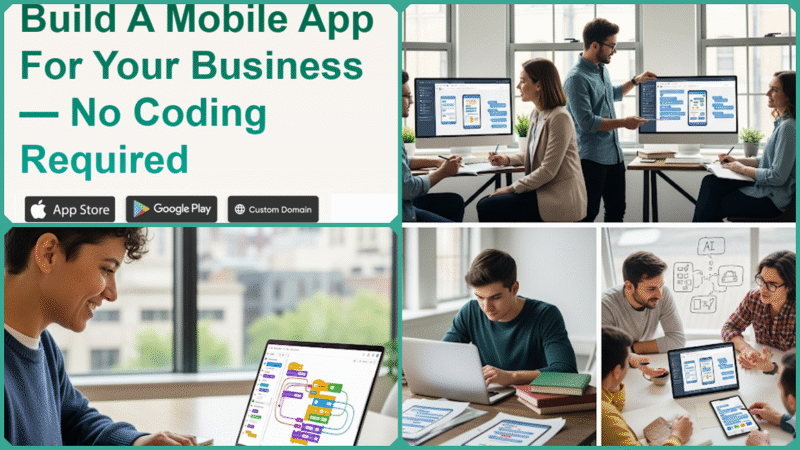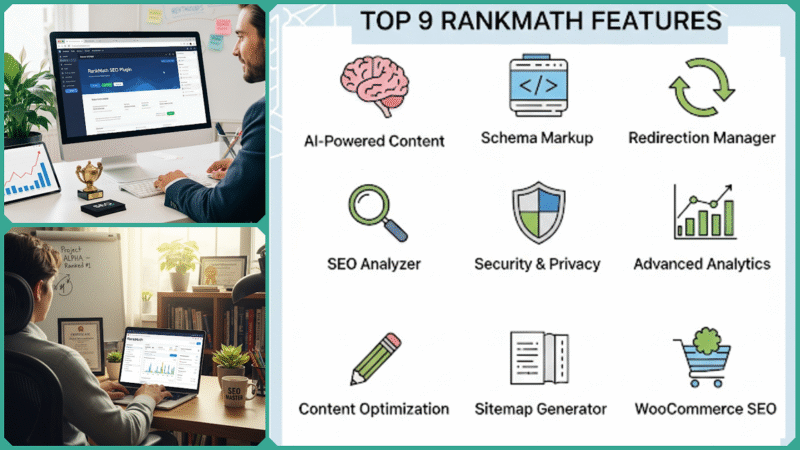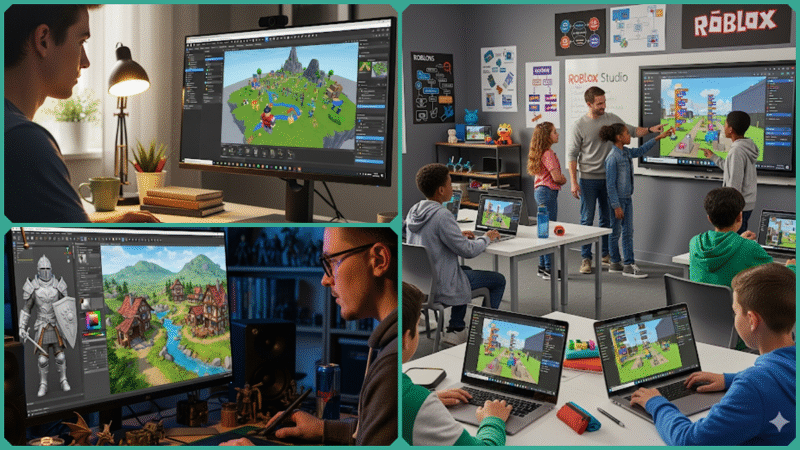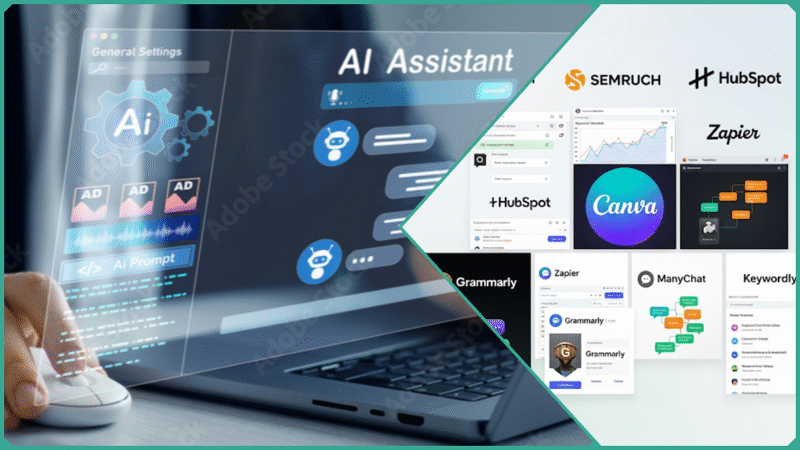13 Best Edtech Tools that Can Help You Boost Your Education
Estimated reading time: 12 minutes
Technology plays an increasingly crucial and transformative role in significantly enhancing the overall learning experiences for students, educators, parents, and lifelong learners alike within today’s rapidly changing and fast-evolving educational landscape. The widespread rise and adoption of advanced educational technology (Edtech) tools and applications have fundamentally revolutionized the traditional methods through which knowledge is delivered, personalized to individual needs, and actively consumed.
This ongoing evolution continues to profoundly reshape education, transforming it in increasingly innovative and impactful ways that influence how knowledge is imparted and received. Whether you are a student striving to improve academic performance, a teacher seeking efficient classroom management, or a parent supporting your child’s studies, leveraging the right Edtech tools can make a significant difference.
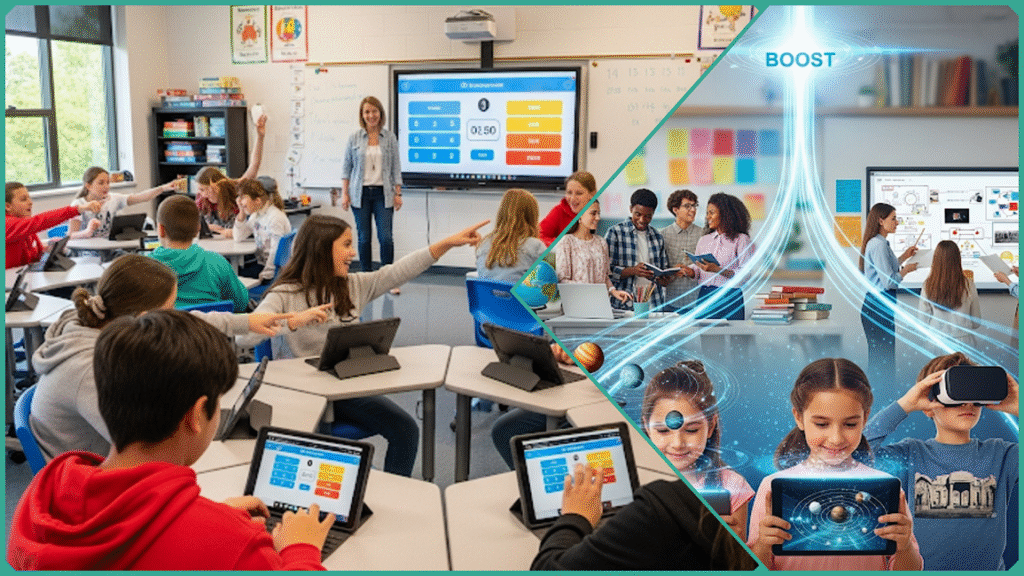
This blog post will introduce you to 13 of the very best Edtech tools available in 2025, carefully designed to significantly boost education and enhance learning experiences. These tools are selected based on the latest current trends and expert insights from leading professionals in the field. In addition to presenting these innovative resources, you’ll also gain a deeper understanding of key concepts in Edtech, helping you grasp the fundamentals and advanced ideas that shape this rapidly evolving sector.
Furthermore, we will explore frequently asked questions (FAQs) that address common concerns and challenges, equipping you with the knowledge and confidence to navigate this vibrant and dynamic field with ease and assurance.
What Are Edtech Tools?
Edtech tools refer to a diverse range of software applications, digital platforms, and innovative technologies specifically designed to improve and support the entire teaching and learning process. These tools encompass a broad spectrum of functionalities, such as;
- Delivering high-quality educational content
- Enabling engaging and interactive learning experiences
- Conducting various types of assessments
- Facilitating seamless communication between students and educators
- Personalizing education to meet individual needs
- Efficiently managing classroom activities and administrative tasks
By integrating these tools, educators can create more dynamic, effective, and accessible learning environments. What makes Edtech particularly powerful is its capacity to offer adaptive learning that;
- Adjusts to the individual needs of students
- Promotes collaboration among learners and educators
- Reduces administrative burdens for teachers
- Engages students through innovative, immersive formats such as gamification
- AI-driven tutoring and virtual reality environments.
This powerful combination plays a crucial role in helping to create more effective, highly personalized, and deeply engaging educational experiences that truly resonate with learners on multiple levels.
Current Trends Shaping Edtech in 2025
Current trends are rapidly accelerating the widespread adoption and continuous evolution of Edtech tools throughout 2025, significantly shaping the way education is delivered, accessed, and experienced by learners and educators alike:
Artificial Intelligence (AI)
AI is fundamentally transforming the field of education by enabling highly personalized learning experiences that are specifically tailored to meet the unique needs and abilities of each student. It helps educators by automating routine and time-consuming tasks such as grading assignments and assessments, allowing teachers to focus more on instruction and student engagement.
Additionally, AI can generate interactive and adaptive educational content that adjusts in real-time to a learner’s progress and understanding. Currently, approximately 60% of educators have integrated AI-driven tools into their teaching practices, underscoring the significant and growing impact that artificial intelligence is having on the education sector as a whole.
Gamification
This innovative trend involves incorporating various game elements such as rewards, points, levels, and challenges into educational and learning activities. By integrating these interactive components, gamification transforms traditional studying into a more enjoyable and immersive experience. It effectively motivates students to actively participate and stay engaged throughout the learning process.
Additionally, by actively encouraging consistent involvement and fostering a spirit of healthy competition among participants, gamification significantly enhances the retention of knowledge. This approach helps learners not only to better absorb the material they are studying but also to effectively apply what they have learned in practical situations.
Augmented Reality (AR) and Virtual Reality (VR)
AR and VR technologies offer highly immersive and engaging learning experiences that enable students to deeply explore complex and abstract concepts through interactive virtual field trips, detailed 3D simulations, and dynamic role-playing exercises.
By integrating these cutting-edge tools into the educational process, these technologies effectively bring academic subjects to life, fostering experiential and hands-on learning environments that enhance understanding and retention.
Data Analytics
Edtech tools are increasingly harnessing the power of advanced data analytics to gain deeper and more comprehensive insights into various aspects of student progress, including their engagement levels, performance trends, and specific learning gaps.
By collecting and analyzing this valuable data, educators are empowered to tailor their instructional approaches more effectively and efficiently, allowing them to provide targeted support exactly where it is most needed. This personalized approach helps optimize learning outcomes and ensures that each student receives the attention and resources necessary for their academic success.
Unconventional Platforms
Platforms such as TikTok and YouTube are increasingly being creatively repurposed to deliver bite-sized, highly engaging, and entertaining educational content. These platforms resonate strongly with digital-native students by seamlessly combining effective learning methods with the familiar formats they already enjoy consuming daily.
This innovative and creative approach not only effectively captures students’ attention but also significantly encourages continuous exploration and sustained interaction with educational material. It achieves this in a manner that is both fun and highly accessible, making learning an engaging and enjoyable experience for students of all backgrounds.
Together, these evolving trends highlight and emphasize why Edtech tools are rapidly becoming absolutely indispensable and essential for delivering effective teaching and fostering meaningful learning experiences in the dynamic landscape of the 21st century.
Best Edtech Tools to Boost Your Learning
Using these educational technology tools effectively can significantly boost academic performance, promote deeper engagement with learning material, optimize teacher workload management, and foster meaningful collaboration among students, teachers, and parents—all of which are essential components of modern, effective education.
These tools not only streamline the learning process but also create a more interactive and supportive educational environment. Here is a comprehensive and detailed overview of the 13 best Edtech tools that have been carefully designed to enhance learning experiences for students, educators, and parents by offering innovative features and functionalities that elevate the quality and accessibility of education:
| Tool | Target Users | Key Features and Benefits |
|---|---|---|
| NotebookLM | Students, Educators | Uses AI to analyze and summarize content from PDFs, videos, and other sources, creating personalized study guides. Ideal for deep research and complex projects. |
| SchoolAI | Educators, Students | An AI-driven “Mission Control” dashboard that tracks student progress in real time, offers personalized virtual tutoring, delivers feedback, and supports lesson planning. |
| Edmodo | Teachers, Students, Parents | A comprehensive social learning platform enabling personalized teaching, resource sharing, online collaboration, and parent involvement to boost academic support. |
| Kahoot! | Teachers, Students | A game-based learning platform featuring quizzes, surveys, and interactive lessons to promote engagement through fun and competition. |
| Socrative | Educators, Students | Allows educators to quickly create and grade assessments, receive immediate feedback, and develop personalized learning activities accessible on multiple devices. |
| Buncee | Teachers, Students | Facilitates engaging visual content creation with ready-made templates, interactive lessons, and motivational points/rewards for learners at various ages. |
| Bakpax | Educators, Students | Provides automated grading and feedback on assignments, converts physical content to digital format, and integrates seamlessly with other educational software. |
| Storybird | Students, Teachers | Supports creative learning through a blend of visual storytelling and writing, especially effective for STEM topics and language arts development. |
| PrepAI | Teachers | Uses AI to generate quizzes and assessments, including multiple question types and difficulty levels, streamlining test preparation efforts. |
| Blue Sky | Educators | A social network designed for educators to connect, share resources, and seek community support focused on teaching strategies, Edtech, and STEM education. |
| Snorkl | Students, Teachers | AI-enhanced platform offering verbal and visual explanations, instant personalized feedback, and comprehensive insights for teachers on student understanding. |
| Flip | Educators, Students | Enables quick creation and sharing of short educational videos with privacy controls, promoting group assignments and peer learning through video responses. |
| eduClipper | Teachers, Students | A versatile tool for content curation, portfolio building, conducting online classes, and organizing academic materials efficiently. |
These tools collectively cover a wide spectrum of educational needs, harnessing AI, gamification, social collaboration, and multimedia to create engaging, personalized, and efficient learning environments. They empower students to take charge of their learning while providing educators with powerful means to track progress and tailor their teaching strategies. Parents are also included, gaining transparency and involvement in their children’s education.
Detailed Insights and Use Cases
With countless educational technology (edtech) tools available, it can be overwhelming to know which ones are truly effective. Let’s go beyond a simple list to provide detailed insights and practical use cases for some of the best edtech tools, showing you exactly how they can be used to improve your learning experience.
NotebookLM: Transforming Study Habits with AI
NotebookLM, developed by Google, is revolutionizing how students interact with educational content. It allows users to upload a variety of source materials such as PDFs, videos, and documents, then uses AI to generate comprehensive summaries, overviews, and study guides.
This capability makes it especially valuable for college students and researchers who must manage and synthesize large amounts of complex information efficiently. By enabling a conversational interface, students can ask questions about their material and get tailored, easy-to-understand responses, boosting comprehension and study efficiency.
SchoolAI: Empowering Teachers with AI Oversight
SchoolAI offers educators a powerful dashboard known as “Mission Control” that provides a real-time overview of student activities and progress. This level of insight allows teachers to identify students who might be struggling and intervene early with personalized support.
One of its key features is “Spaces,” AI-driven virtual tutors that provide each student with customized assistance, enabling personalized learning paths. This fosters deeper engagement, adaptability, and helps teachers efficiently plan lessons to meet their students’ unique needs.
Edmodo: A Social Learning Environment
Edmodo creates a dynamic learning community by providing an all-in-one platform where teachers can share study materials, assignments, and resources. It also facilitates monitoring of student performance and allows parents to stay informed about their children’s progress seamlessly.
The platform is designed to enhance collaboration, promote accountability, and facilitate seamless communication among students, teachers, and parents alike. By providing these essential features, it significantly simplifies the process of building and maintaining a nurturing and supportive educational ecosystem where every participant can actively contribute to the learning experience.
Kahoot! and Socrative: Engaging Through Interactive Learning
Kahoot! utilizes game-based learning through interactive quizzes, surveys, and challenges, making classrooms more engaging and fun. Its competitive format motivates students to participate actively, improving retention and enthusiasm.
Socrative complements this by allowing educators to create quick, customizable assessments that provide instant feedback. This immediate insight enables teachers to adjust their instruction dynamically. Both tools have strong classroom validation, contributing to improved motivation, engagement, and academic performance.
In Summary
These innovative tools exemplify the powerful and transformative impact that Edtech has in creating highly personalized, deeply interactive, and truly collaborative learning experiences that bring significant benefits to both students and educators alike.
They effectively demonstrate how advanced technologies such as artificial intelligence, engaging educational games, and dynamic social platforms can seamlessly combine to improve educational outcomes in meaningful ways. By offering practical, accessible, and user-friendly solutions, these tools pave the way for a future where learning is more effective, enjoyable, and tailored to individual needs.
FAQs
How do Edtech tools improve student learning outcomes?
Edtech tools enable personalized and engaging learning experiences by adapting to individual student needs. They provide instant feedback on performance, allowing students to correct mistakes quickly. Additionally, these tools allow educators to use data-driven insights to tailor instruction and interventions, which together enhance understanding and improve knowledge retention.
Are Edtech tools suitable for all education levels?
Most Edtech tools are designed to be flexible and adaptable across a wide spectrum of education levels, from K-12 schooling to higher education and adult or lifelong learning. This versatility makes them valuable resources throughout a learner’s educational journey.
How can parents support their children’s use of Edtech tools?
Parents can play an active role by becoming familiar with the specific Edtech tools their children use, monitoring progress reports provided by these platforms, and encouraging regular and focused use. This support at home helps reinforce learning and ensures that children stay engaged and motivated.
What should educators consider when choosing Edtech tools?
Educators should evaluate the tools based on ease of use, alignment with their curriculum goals, the ability to personalize or differentiate learning, and robust data security and privacy features. Ensuring these factors helps maximize the tool’s effectiveness and safety for students.
Is training required to use Edtech tools effectively?
Although many Edtech tools are designed to be user-friendly, training and professional development are recommended. Proper training helps educators and students understand the full capabilities of the tools, integrate them seamlessly into teaching and learning routines, and thus extract their maximum benefit.
In Conclusion
Choosing the right Edtech tools can profoundly enhance the quality, accessibility, and engagement of education for all involved. Innovative AI-powered assistants like NotebookLM and SchoolAI provide personalized support and real-time insights, while interactive game-based platforms such as Kahoot! make learning dynamic and enjoyable.
These tools address diverse educational needs by enabling customized learning paths, helping educators save time and improve the effectiveness of their instruction, and empowering parents to actively participate in their children’s education.
Embracing these technologies not only modernizes traditional learning methods but also creates a more efficient, engaging, and effective educational environment. For optimal outcomes, it is important to select tools aligned with your specific educational goals and to stay updated on emerging Edtech innovations that continue to reshape how we teach and learn in meaningful ways.
Discover more from Skill to Grow
Subscribe to get the latest posts sent to your email.


